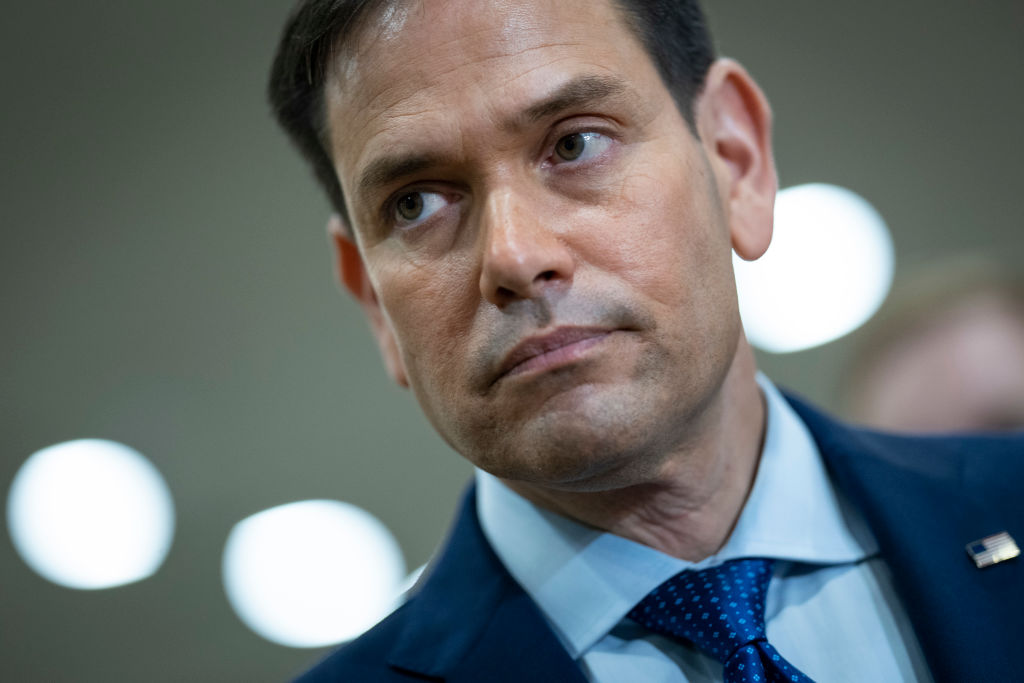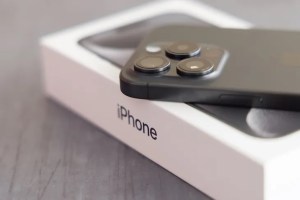Senator Marco Rubio today sent a strongly worded letter to Harvard president Lawrence Bacow expressing concerns prompted by a Spectator magazine investigation by this reporter that Harvard may be “actively supporting [America’s] principal adversary,” the Chinese Communist Party.
“Throughout the pandemic, we were told to trust the experts,” Rubio told The Spectator exclusively. “But what we increasingly see is so-called trusted experts and institutions engaged in highly questionable behavior. This looks really bad, and if it turns out to be true, any last shred of faith that the American people had in these ‘experts’ will be deservedly stamped out. We need to get to the bottom of Covid-19’s origins, but we also need to identify those who misled us and determine whether it was at the direction of the Chinese Communist Party.”
The article — read here — uncovered questionable relations between Harvard Medical School and CCP-tied real estate giant Evergrande over attempts to reach Anthony Fauci at the most sensitive moment in the scientific debate on the origin of the pandemic.
“It has come to my attention that in the early days of the Covid-19 outbreak in the United States, you, Harvard Provost Alan Garber, and Harvard Medical School Dean George Daley facilitated what would become a concerning relationship between Dr. Anthony Fauci and the Chinese property developer Evergrande,” Rubio writes in the previously unreported letter, which puts to Bacow the question of whether Harvard informed the FBI of these activities.
The article uncovered what one source, a senior figure in the US science establishment, characterized as a Chinese attempt to use the nine-figure donation to marshal Harvard faculty and experts who “could be relied on to support, or at least not oppose, the false narrative concerning the origin of the pandemic.”
Rubio’s letter detailed a several pointed questions, including:
“Did you, or other members of Harvard’s administration, contact the Federal Bureau of Investigation or other law enforcement agencies with concerns about Evergrande’s attempt to contact Dr. Fauci through Harvard?”
“When Evergrande Founder and CCP member Xu Jiayin contacted you in January 2020, he reportedly asserted that there had been no interaction between the National Institute for Health or the US Centers for Disease Control and Prevention and their counterparts in the PRC. Were you not aware that Dr. George Gao, the director-general of the Chinese CDC, had not only been in contact with Dr. Robert Redfield, the US CDC director, on multiple occasions since the beginning of January but that Gao had also refused support offered by the United States?”
“When Harvard Medical School Dean George Daley contacted Dr. Fauci on February 2, 2020, had Evergrande already communicated its intent to pledge $115 million to Harvard Medical School?”
Rubio has been one of the most outspoken voices in the Senate on the question of the pandemic’s origin and China’s role in mishandling the outbreak by withholding information in the crucial early days of the pandemic. Rubio also engaged in a tense round of questioning with Fauci during a Senate Appropriations Committee hearing on the topic of NIH funding of labs like the one in Wuhan.
Rubio also noted that: “According to reporting by The Spectator, these interactions apparently shaped two subsequent developments: 1) a donation by Evergrande to Harvard Medical School to the tune of $115 million, and 2) a decision by US scientists and public health officials, including Dr. Fauci, to publicly dismiss the possibility that the novel coronavirus emerged as a result of a research-related incident, likely at the state-run Wuhan Institute of Virology, after these same scientists and officials had discussed this very hypothesis in private and deemed it plausible.”
Rubio’s Harvard letter calls attention to the “coincidental timing of these events” that “suggests the possibility of a quid pro quo, whereby Harvard officials, in return for a large donation from Evergrande, contacted American public health officials to convince them that Chinese Communist Party’s preferred theory of the origin of Covid-19 was the only theory that should be seriously considered.”
Rubio, who serves as vice chairman of the Senate Select Committee on Intelligence and is a member of the Senate Committee on Appropriations, cited his “responsibility to the American taxpayer to ensure that recipients of federal funding, like Harvard, are not complicit in the CCP’s malicious attempts to subvert the interests of the United States, including the search for the origin of Covid-19.”
The letter requests details of a meeting between George Daley and Evergrande officials referenced by Daley in his email to Fauci and asks for the full and un-redacted contacts of that email, which contains significant unexplained redactions.
Rubio concludes by noting that, “The United States has entered an era of great power competition with the CCP, a regime that has explicitly called for the displacement of the United States as the world’s leading power. It is incumbent on all Americans to be vigilant against the CCP’s attempts to weaken the United States and our institutions, including our educational institutions.”
The question of the origin of the pandemic, once cast as conclusively coming from an unidentified animal, is now back in the limelight. While there has been significant debate concerning the science surrounding the origin of SARS-CoV-2, there has been comparatively little investigation into the role powerful institutions like Harvard might have played in shaping, or, in some cases, contorting, this debate.
This is a key line of inquiry into what might constitute malfeasance surrounding the most consequential story of this generation, with more major breaking news in coming weeks.


















